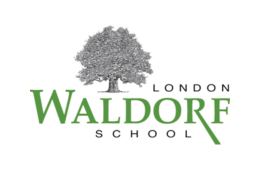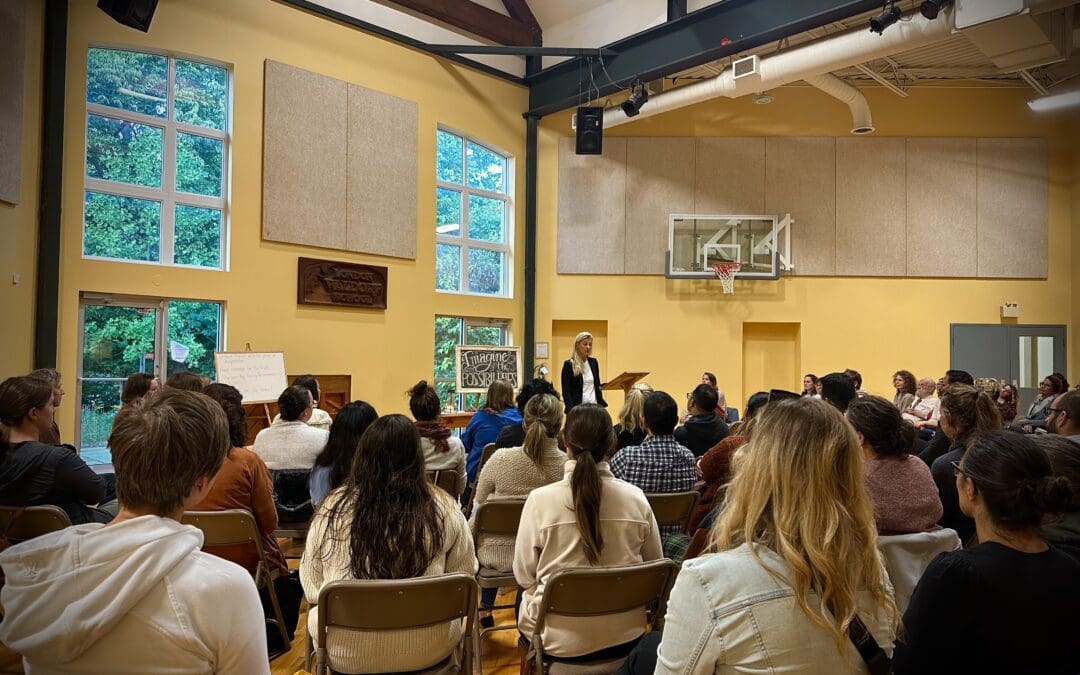Good evening Parents and welcome to another school year!
My name is Reka Borbely and I am trusted to hold the management of the pedagogical aspects of teaching and learning at the school. This involves, among other things, keeping a pulse on educational trends in the mainstream and Waldorf arena; looking, searching for answers, and constantly seeking ways to ensure our students are met academically, socially and emotionally.
This search has been the main focus of education on the global scale in all educational spheres: public and private for the last decade and has become increasingly important over the last few years when it became evident that schools cannot educate children for the future through outdated values, methods and misaligned expectations. The UNESCO states in 2021:
Our world is at a unique juncture in history, characterized by increasingly uncertain and complex trajectories shifting at an unprecedented speed. These sociological, ecological and technological trends are changing education systems, which need to adapt. Yet, no trend is destiny, and education has the most transformational potential to shape just and sustainable futures.
Countless new initiatives have surfaced worldwide: eco-schools, forest schools, the Hall in the Wall project in India, the Constructive Struggling concept in Japan, blended learning, flipped lessons, asynchronous learning hubs, and gamification. The urgency to reimagine futures and take action to realize them is palpable. Many of our talented colleagues at the local district school boards work with great effort to put theory into practice but the burnout rate shows that something does not work: approximately 26% of public school colleagues leave the profession within the first 5 years.
Waldorf schools in some ways are at an advantage in this quest since we continuously have to define ourselves because, in the eyes of the public, we are walking alternative paths. In other words, self-evaluation is very much part of our practice. Last year, we started a collaborative inquiry of our curricular practices starting with the WHY and following with HOW and WHAT.
We find it crucial, that
We as a faculty and individuals know why we do what we do.
We have the discipline of how.
we have the consistency of what.
One of the major tasks of this self-discovery is finding and fully understanding the WHY. Why we are doing what we are doing? Also, how are we different? What are our superpowers?
During our faculty meetings, we started a project-based approach to pedagogical studies throughout the year. We took our mission statement, which sounds like this:
“We are a vibrant learning community where education is an art. Based on a deep understanding of human development, and through the Waldorf curriculum, we enable each person to fully develop their unique capacities, inspiring a life-long love for learning.”
We took it apart and spent a term on three different aspects:
1. Deeply understanding child: This term assumes that we know the hindrances: emotional or academic and can work with them so that the child can reach their full potential. We understand the child when they come in frustrated/ lack of focus or when they break out in a tantrum. When they put their heads on the table because they gave up, or when they yell at the teacher “This is stupid!” We understand what’s happening when they cannot read in Grade Five or work at a third-grade math level in Grade Eight. Understanding also implies that we do something with that knowledge. We use the knowledge to meet the child academically, socially, emotionally and even culturally.
So in the first term last year we took up the topic of inclusion in general: academic, social, emotional and cultural. We deepened our understanding of trauma, and the different learning challenges, and created a new process for writing education plans. The ECE department and the Grades worked together to review and make changes to the transition from kindergarten to grade one. We started looking at our festivals and discussed ways to enrich our practices to reflect our increasingly diverse community. This work continues this year.
2. The mission statement also says: we are a vibrant community where education is an art. What does it mean to us: We teach art, teach through the art or practice the art of teaching. Probably all three are true but the topic of the second term was The Art of Teaching; the authenticity and freedom of the individual teachers vs. standardized processes. In our system where the class teacher stays with the class for up to eight years, we can really make a change as long as our freedom is coupled with responsibility.
3. The third topic last year was the question of “bringing the world to the students’. We want to educate students so that they engage more fully in the world. They can only be fully engaged if they are fully aware of the world with its past and present. We are bringing TRUTH through stories and how we do that responsibly was the part we discussed.
This year’s faculty work is inspired by the message of the World Teachers’ Conference that was held in Switzerland in April. Ms. Strasser, Ms. Cooper and I attended this conference along with almost a thousand other Waldorf Colleagues from around the world. It was titled: Affirming-Nurturing-Trusting: An Education for Today and Tomorrow.
The general themes were centred around the future of Waldorf Education, the world and humanity. It was inspiring to witness these themes be covered both from a Waldorf/ anthroposophical lens as well as research from a variety of disciplines outside of Waldorf such as mainstream medicine, philosophy and psychiatry.
The central idea was that school is a place where the health of the future is working, it is a place of protection. We have to make the educational process into a healing process. The world is an environment which bears unhealthy forces. Schools must resonate more strongly with health-giving forces. Teachers must become physicians, and consider that children themselves are the homeopathic remedy.
There were three human needs identified that need the most attention in education today for the future:
RECONNECTING WITH NATURE The pandemic of our time is an alienation from nature – Nature Deficit Disorder. Poor nutrition and lack of movement are also leading contributors to illnesses. The human body is a synthesis of the realms of nature. We cannot be healthy if we are estranged from them.
PRACTICAL TASKS AND SERVICE We also need to have the experience of making meaning out of life, which we do with the will, with our hands through practical and artistic tasks. It is essential for children to engage in practical work and to come to see the value of serving others.
HUMAN CONNECTION There is further a need for community, or experiencing the interest of another, of feeling the love between us. The transcendent medium of the community resides between the polarity of seeing/perceiving ∞ and being seen/perceived.
These three needs: nature, practical task and human connection sum up the direction where we set our focus at the LWS.
During faculty studies, we will deepen our understanding of restorative practices so teachers can confidently use circles in their classes proactively and reactively when social conflict arises. We will also take up the work of relationship-based education through the framework of Third Path in the winter term. This is a model that encourages teachers to shift the classroom focus from tasks to relationships, from checklists to check-ins.
In the spring we will engage in discussions with our Haudenosaunee colleagues on ways to approach environmental stewardship. We will also look at our current practices and explore what more is available on our land.
On behalf of the faculty I invite you to engage with our work: help us in the homefront, read our reports and weekly highlights, ask questions, and bring suggestions.
Let us be the change together!


